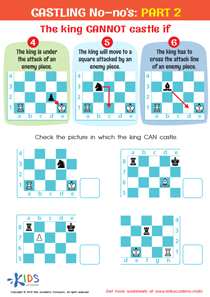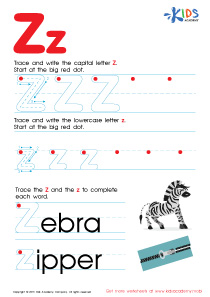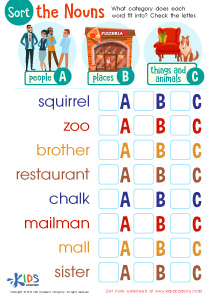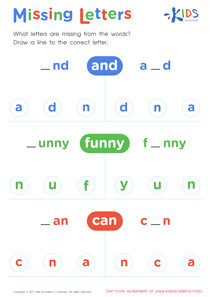3 results
3 filtered results
Clear all filters3 filtered results
-
From - To
Introducing our engaging Interactive Assessment Quizzes - tailor-made for the inquisitive minds of 5-Year-Olds! This fun and educational series focuses on the foundational concept of Data, tailored specifically for young learners. Through a variety of interactive questions, these quizzes are designed to check understanding, reinforce knowledge, and provide immediate feedback to keep your child motivated and on track. Perfect for introducing the basics of data collection, recognition, and simple analysis, our Data for 5-Year-Olds quizzes make learning both enjoyable and impactful. Dive in and watch your child’s curiosity and knowledge grow!
Unlocking the World of Data for 5-Year-Olds: The Power of Interactive Quizzes
In an era dominated by information, understanding data from a young age can set the foundation for lifelong learning and critical thinking. For 5-year-olds, who are naturally curious and eager to learn about the world around them, interactive quizzes on data can be a powerful tool in their educational journey. These quizzes are not just games but avenues for young minds to explore, understand, and apply the concept of data in their everyday lives.
Engaging Young Minds with Interactive Learning
The thought of teaching data to 5-year-olds might initially seem daunting. After all, data analysis is a complex skill. However, it's not about turning children into statisticians but rather about introducing them to the basic concept of data: collecting, analyzing, and interpreting information. Interactive quizzes designed for 5-year-olds transform this seemingly complex subject into a series of fun and engaging activities that captivate young learners' attention and stimulate their curiosity.
Tailored Content for Early Learners
These quizzes are carefully crafted with the developmental stage of 5-year-olds in mind. The content is simplified to ensure it is age-appropriate, focusing on visual representations of data, such as charts with basic shapes or colors, and questions that encourage them to notice patterns, count, and compare quantities. This hands-on approach to learning through play makes the concept of data relatable and accessible to young children, laying a solid foundation for more advanced mathematical concepts in the future.
Promoting Critical Thinking and Problem-Solving Skills
Interactive quizzes on data for 5-year-olds are not just about learning to count or recognize shapes. They are designed to nurture critical thinking and problem-solving skills. As children interact with these quizzes, they are encouraged to ask questions, make predictions, and draw conclusions based on the information presented to them. This active engagement with content fosters a deeper understanding of data and its applications, preparing children for a data-driven world.
Building Confidence and Encouraging Independence
One of the significant benefits of interactive quizzes is their ability to adapt to the individual learner's pace. Children can take their time to understand and explore each concept without the pressure of keeping up with peers. This self-paced learning environment is crucial for building confidence among young learners. As they navigate through quizzes, making choices, and seeing immediate feedback, children develop a sense of independence and a positive attitude towards learning.
A Foundation for Future Learning
Introducing data through interactive quizzes to 5-year-olds is about more than just numbers and charts; it's about creating a foundation for future learning across all subjects. The skills developed through these quizzes—observation, analysis, critical thinking—are transferable to numerous other areas, from reading comprehension to scientific inquiry. By incorporating data literacy at a young age, we are equipping children with the tools they need to navigate and succeed in an increasingly data-centric world.
In conclusion, interactive quizzes on data for 5-year-olds are a revolutionary approach to early childhood education. They transform abstract concepts into tangible learning experiences, engage young minds in meaningful ways, and lay the groundwork for a lifetime of curiosity, problem-solving, and informed decision-making. As we continue to explore innovative educational tools, the potential to shape informed, confident, and capable learners is endless.













